
ROME, 31 August 2019 — Pope Francis on Saturday named Msgr. Dario Edoardo Viganò to the position of Vice Chancellor of the Pontifical Academy of Sciences and the Pontifical Academy of Social Sciences.
That lede is about as plain vanilla as anyone could write for this story. You might be doing a double-take. There’s a reason for that.
Msgr. Dario Edoardo Viganò (no relation to the whistleblower) is the fellow who resigned the leadership of the Holy See’s Secretariat (as it was then styled) for Communication in March of 2018. Pope Francis had chosen Msgr. Viganò to take his new comms department out of the gate, and lead it through a major overhaul of the Vatican’s entire comms apparatus.
Msgr. Viganò resigned in the wake of a major to-do dubbed the “Lettergate” affair: a fake news scandal that made headlines for weeks. Lettergate broke when Msgr. Viganò made inappropriate use of a letter from Pope emeritus Benedict XVI, which he had solicited as part of his efforts to promote an eleven-book series on The Theology of Pope Francis. Msgr. Viganò selectively quoted from Benedict’s letter, and altered a publicity photo in a manner that put him on the wrong side of the AP’s ethical standards for news photography.
I’d worked in Vatican communications for more than a dozen years, first at Vatican Radio and then in the Secretariat for Communication, before leaving at the end of 2017. I’d seen a lot through the years, but what transpired in March of 2018 was pretty surprising.
Pope Francis picked Msgr. Viganò to oversee and direct a communications reform touted as the most significant reform of Vatican communications since Pius XI founded Vatican Radio. As things turned out, Msgr. Viganò couldn’t handle the press for a book series without playing fast and loose with the facts. Francis allowed Msgr. Viganò to resign, albeit “not without difficulty,” and inexplicably put that man into a position he invented for the former Prefect inside the same dicastery Msgr. Viganò used to lead, where nobody really knew what he did or was supposed to do.
Now, Pope Francis has put Msgr. Viganò into another position that didn’t exist until Francis decided Msgr. Viganò needed to be in it, “with specific competence for the communication sector,” according to the announcement in the Saturday bulletin from the Press Office.
Yes, you read all that right. No, I’m not making it up. You can’t make this stuff up. If this were the plot pitch for a Hollywood send-up of Vatican dysfunction, incompetence, and ineptitude, the pitch man would be shown the door in a hot second. It simply is not credible: not as parody, not even as farce.
To be perfectly frank, most of what I have to say about this business is unprintable.
The Saturday announcement capped a week of remarkable personnel decisions: dogged by scandal, the Apostolic Nuncio to Chile, Archbishop Ivo Scapolo, has landed a plum position as Nuncio to Portugal, for example. Also on Saturday, Pope Francis’s mild-mannered and supremely competent interpreter, Msgr. Mark Miles, was named Permanent Observer to the Organization of American States — a portfolio that historically has gone to the Nuncio to the US or to the Permanent Observer to the UN.
There’s lots to say about those appointments, too, but first I have to get my head to stop spinning.
If you value the news and views Catholic World Report provides, please consider donating to support our efforts. Your contribution will help us continue to make CWR available to all readers worldwide for free, without a subscription. Thank you for your generosity!
Click here for more information on donating to CWR. Click here to sign up for our newsletter.






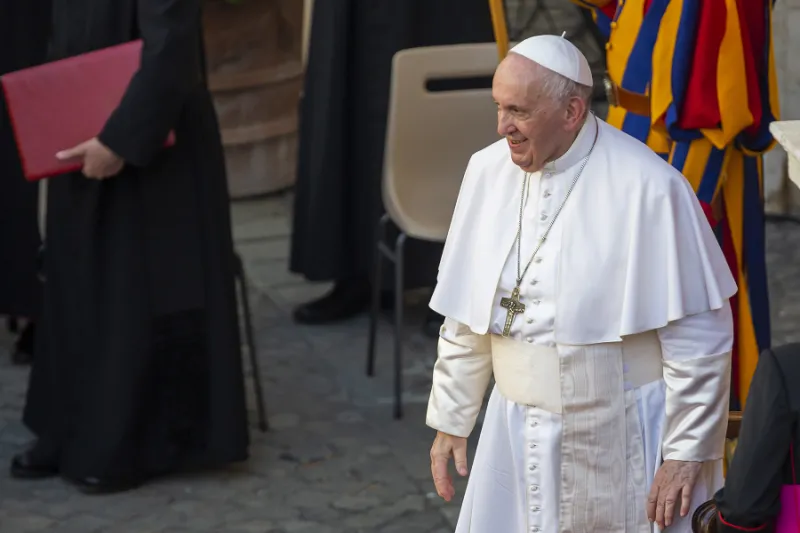
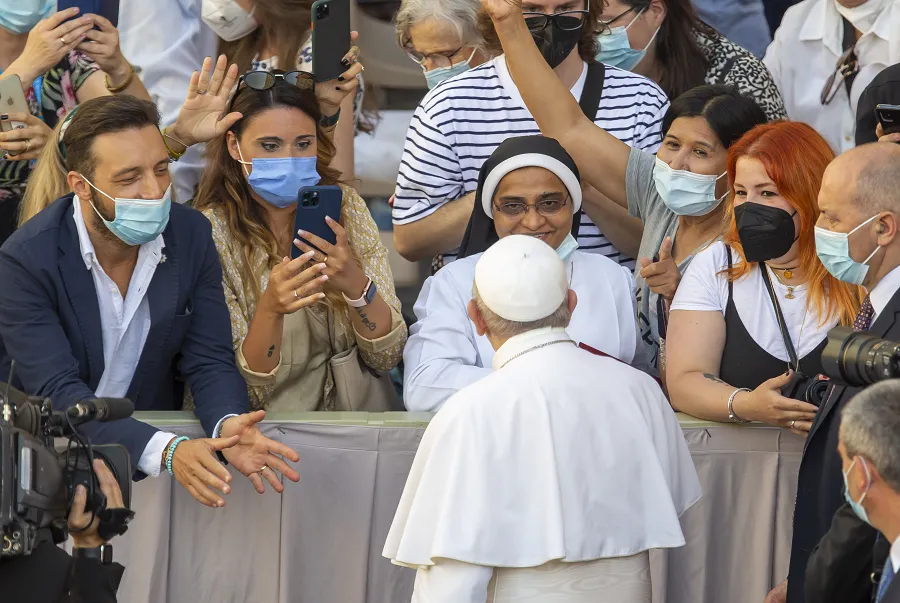
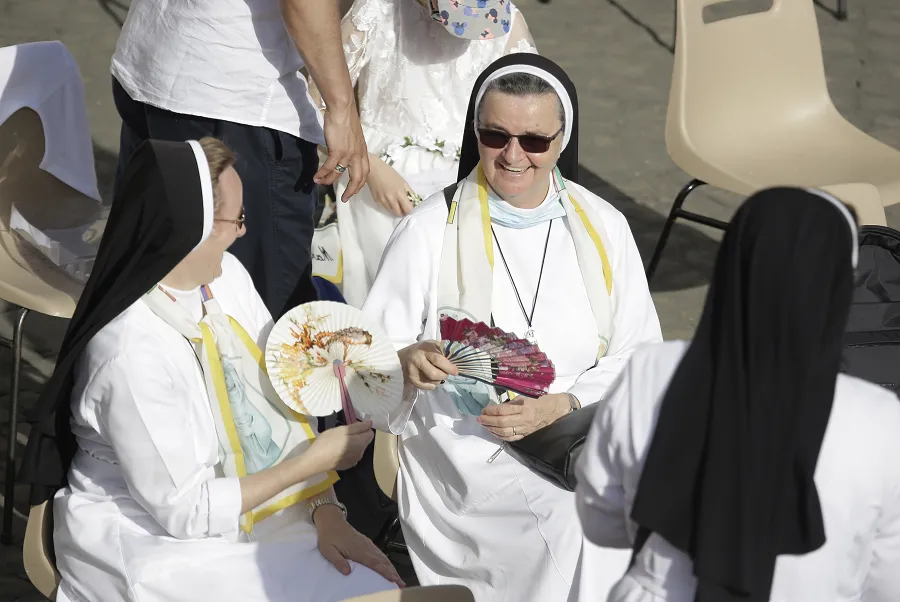
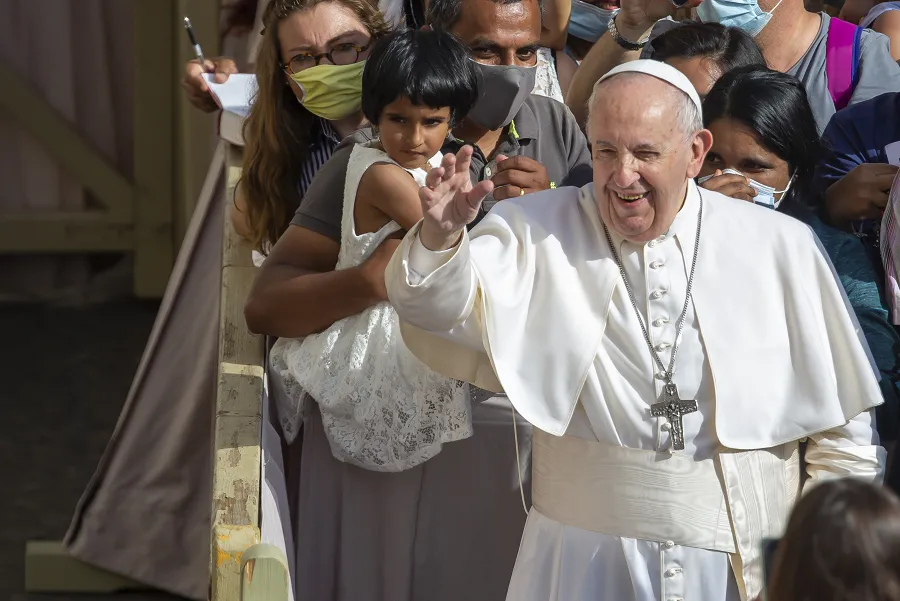
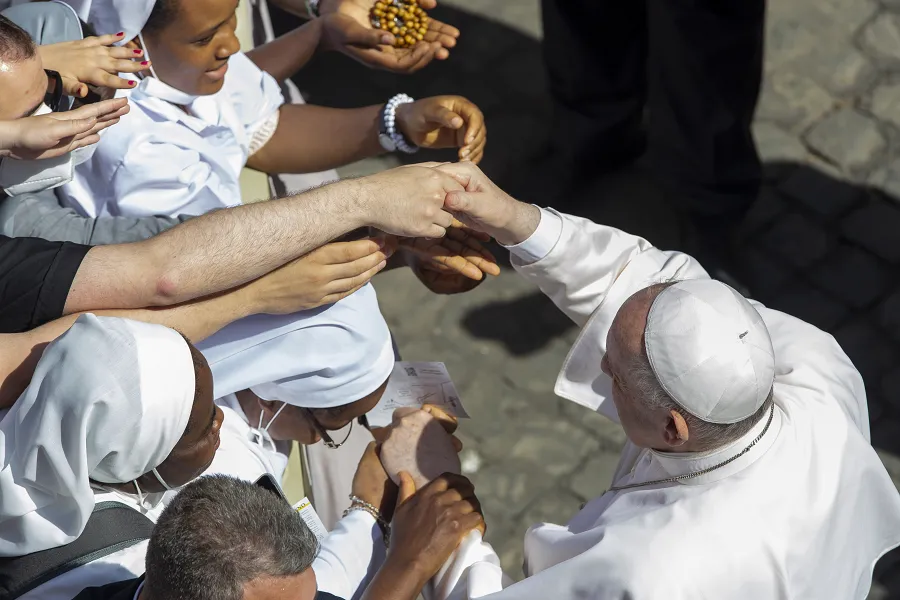
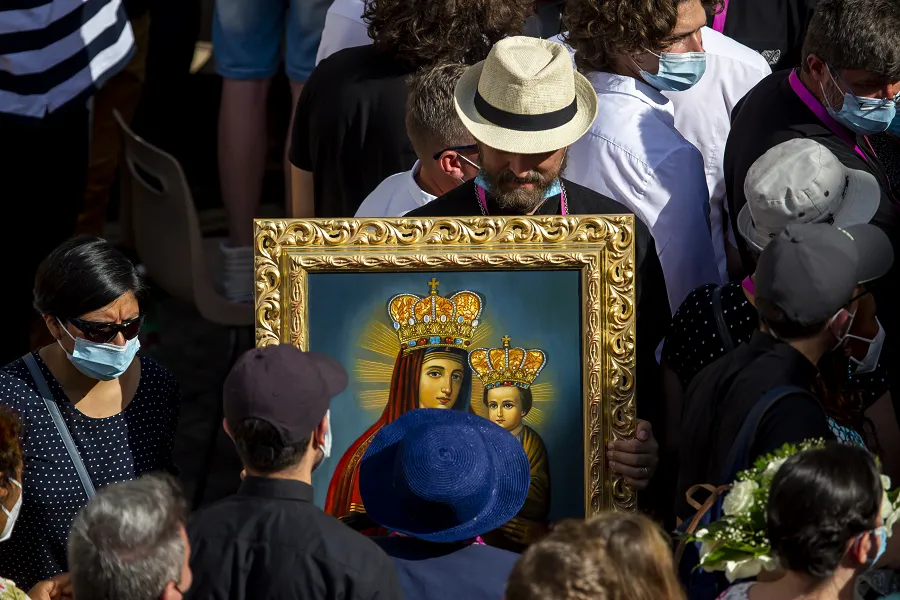
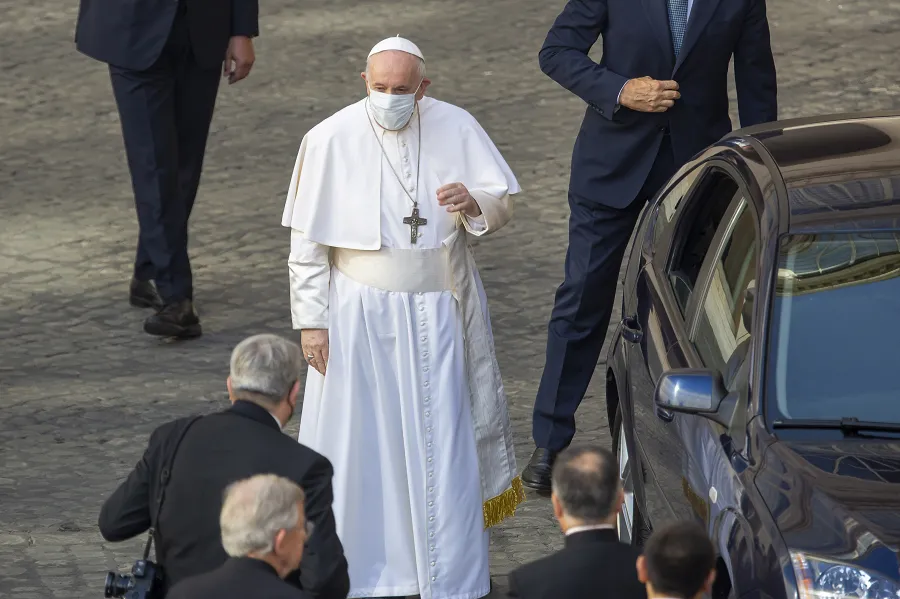

Dysfunction that goes all the way to the top.
XI: Thou shalt not be on the wrong side of the AP’s ethical standards for news photography.
Has there ever been a pontificate in the modern era serving as the greatest magnet for corruption? The Sicilian proverb is apt: Fish rots from the head!
Fr. Stravinskas,
They say that Pope Francis was elected to reform the curia. I guess the electors didn’t specify whether he was to reform it in holiness or in corruption.
Not to defend Francis, but it was JPII who named Bernardin to Chicago.
Later, it was McCarrick to head Metuchen, then Newark, then DC (with a redhat). And it was his hand picked Sec of State, Sodano, who protected Maciel.
It was Paul VI who promulgated a highly Protestantized mass, and strong armed priests to make sure it was said versus populum in the vernacular. And the great punch line was canonizing him. Whatever happened to the necessity of Pastoral Prudence in the holiness of a pastor? Or a pope keeping his word (cf Cardinal Mindszenty)?
Well said. The collapse of Catholic Rome has been a multi-papacy endeavor.
As John Zmirak noted, we have a Renaissance Papacy. All the same financial corruption, scheming and sexual misconduct, but sadly without any of the art (and no, that blasphemous pornographic mural that Archbishop Paglia commissioned in his Cathedral does not deserve to be called “art”). No wonder Gregg Burke resigned as the Vatican’s head of communications; he clearly concluded he could not spin what is unfolding.
“Teatro Francesco” is so extensive and dense one can be excused for allowing “lettergate” to slip
from awareness. Ah, I do now remember that matchless howl from the guts as I read “…a new 11-volume set of books on the theology of Pope Francis…”
That was a good one.
Eleven volumes!
On theology!
Doubtful he could independently produce eleven sentences on his preferred perspective of third world Marxist social analysis. Yet I should not jump to judgement. Who can yet determine what the Anaconda Synod will inspire?
Nevertheless this display of Bergoglian nepotism does seem to have moved the earth under the feet of the “Crux” arm of the fan club. Even John Allen perceives the shameless absurdity to some extent. The ascent of Viganò “the less” serves at least the purpose of rallying to marginal awareness those subsumed in the Bergoglian opioid. It is perhaps the best we can expect before they slip into jungle fever.
Can we look forward to the editorial staff of Crux and checkbook Carl Anderson and his Knights of Columbus sporting safari attire come October?
Unsure what the fuss is about ..even after reading the red letter notationed
articles ; seems the Msgr . thought highly enough about the Pope Emer . to deduce that the latter’s good remarks about the ‘little volumes’ are from a good discerning heart , in spite of his mention of not having read through them .
The Holy Spirit does not blame the Gospel writers , for editing out massive extents of the details of the incidents in the life of our Lord, which to this day also cause difficulties for those who want to find ways to doubt and those of other faiths to misinterpret the passages . Such can be the case with passages such as the one of striking on one cheek , turning the other – our Lord Himself also showed the example of questioning the servant who struck Him unjustly , showing the readiness in courage , to be struck again , for the sake of truth ..
or the one about being asked for the robe – how a discerning heart would know that the
real robe that is asked for by a greedy one would be for the robe of a good relationship with The Father , being set free from the nakedness of shame of being a child of the father below and so on ..
Holy Father ‘s intentions for this month , blessing those who can help find ways to clean the oceans ..
it is Pope Emer. Benedict who mentioned how the external deserts grow , in line with the internal ones ..
Similarly , the papal blessing and intention for this month – let us hope and pray with him for the Holy Spirit , to gently yet powerfully clean out the internal pollutions , seeing each other , as the gifts that we are in The Lord, for The Father , that we are open to raise our hearts , also in response to the calling from the countless holy angels and saints to praise The Father ..
even as easy as it is , to fall into mumrmurings ,as in the desert ..
Immaculate Heart of Mary , pray for us all, help us to be more of persons of praise and gratitude with the Holy Father , to be set thus free from being stuck in fears and darkness ! 🙂
For those who keep watch for the justice of The Righteous Judge, the prayer is to drive out the “Amazonian” spirit of McCarrick and Inzoli and Danneels and Zanchetta, the characters recruited by “His Holiness of Argentina.”
May the prayers for justice of the FFI Franciscans, and the Sisters of Mary Mother of the Redeemer and the underground Church in China, brutally abused by this pontificate and its henchmen, join those of the families and victims of abuse at the hands of all of the McCarricks and Inzolis and Danneels and Barros and Zanchettas etc etc etc, and ascend to heaven, so that the sun of justice dawns.
Comparing the Gospel writers to a high official of the Vatican caught in a major scandal?
The Gospel writers were inspired by the Holy Spirit to write and reveal as much, but not beyond, what we need to attain Eternal Life.
A ‘comprehensive’ Bible would not have served humanity in its primary purpose – salvation. From a child I had endless questions but far less when I matured. A thousand volume Bible would only interest Bibical scholars and those still lost in deconstruction. And the ability of people to pay attention grows less with time and technology.
Since when does the Holy Spirit need to be more comprehensive or less than honest whether in its inspired direction of the Bible or in ‘influencing’ the actions of a Vatican official?
Faith is not a user guide but a gift.
Thank you for responding ( hopefully 🙂 ) to The Spirit’s invite , to offer fraternal correction and opening up an occasion for more clarification .
Right indeed that the Holy Spirit did guide the Gospel authors , to only write down so much , leaving a good bit of the ongoing sharing of the truth to be through The Spirit Himself , as our Lord also promised and as St.John alludes to – how the whole world itself could not contain what our Lord has done, from The Incarnation on down ..
The Last Supper alone to fulfill those words too …
An ordained minister in The Church , the Msgr in this case , having the share of that wisdom , in The Spirit , to also assume that the Pope Emer . gave the blessing for his writings in that wisdom – not that far fetched to see .
The Holy Father too thus very likely was moved to make the correction for a previous judgement from others may be .
https://www.amazon.com/Into-Your-Hands-Father-Abandoning/dp/1586174770 – on the freedom , ‘ like a child playing in it’s Mother’s lap ‘ – is how this book mentions
what the life is , of one who has truly surrendered to The Spirit .. and how it only happens in stages .. good customer reviews too ..
Having dreaded the word ‘ surrender ‘ , as seen in the book cover , associating same with our Lord’s words on The Cross , grateful to hear all the good in it , to trust more :).
The mention in the original comment was related to same , having heard recently how those who are bent on seeing Christianity as ‘impractical ‘ , uses some of the verses in such a manner – my own heart too having been not too far from same , shedding light on the need for ongoing growth in trust , in the goodness of The Father , how there are modern day saints too such as St.Faustina , who has also shown the heroic side of showing the other cheek .. in the freedom in The Spirit ..
Thank you and God bless !
While Jesus does teach that the faithful are like His sheep, it is not commanded that being Catholic requires us to act like cattle.
Acknowledging reality is a necessity for following Jesus. Making lame excuses to explain away dishonest acts by “Viganò-the-less” is unworthy of serious Christian disciples (it even offends the low ethical standards of the Associated sprees).
Our story begins in Buenos Aires, with a little boy who had a dream of blending the “conservative” pieties of old women, the rhetoric and dance moves of Juan Peron…and as required…varieties of materialism. What ultimately worked best for him and summed it all up? Machiavelli!…a name that sounded delicious to him and yes, he liked his pasta! The best part? It wasn’t “boring” or “static” like another Italian…Thomas Aquinas…
I’m just so proud of what I see and hear coming from this Vatican, I could burst.
NOT. Not now, not ever.
This pope and his lieutenants are doing evil things for evil reasons. Something wicked this way comes.
Bet on it.
“…fake news scandal…”
A scandal that is itself “fake news”? Or, a scandal caused by someone’s fabricating “fake news”?
Viganò fabricated (via photoshopping) an apparent “endorsement” by Pope Benedict of a set of “little books” (as he called them) about Bergoglio’s “theology”–books which Benedict assured the world he would never find time to read.